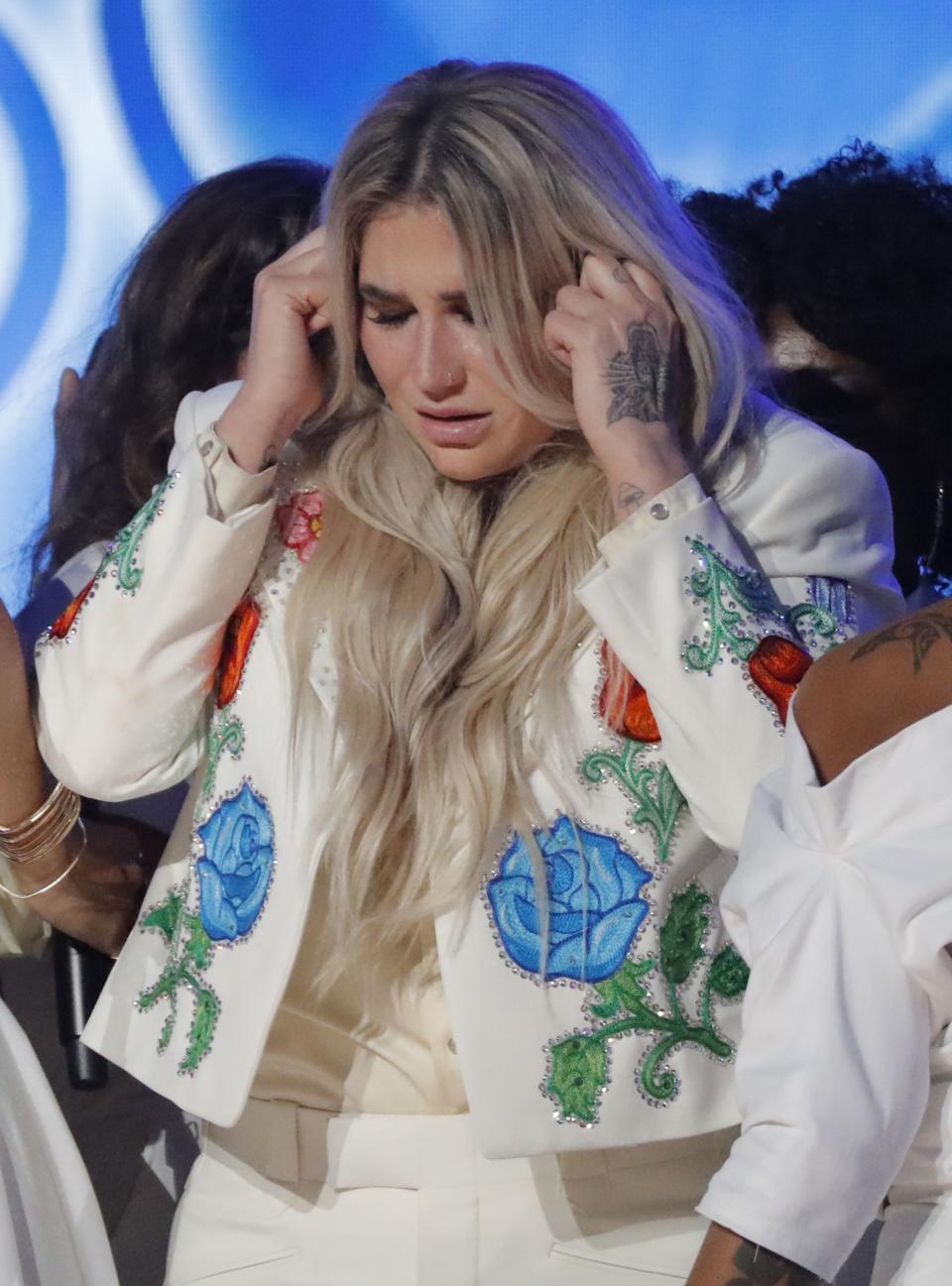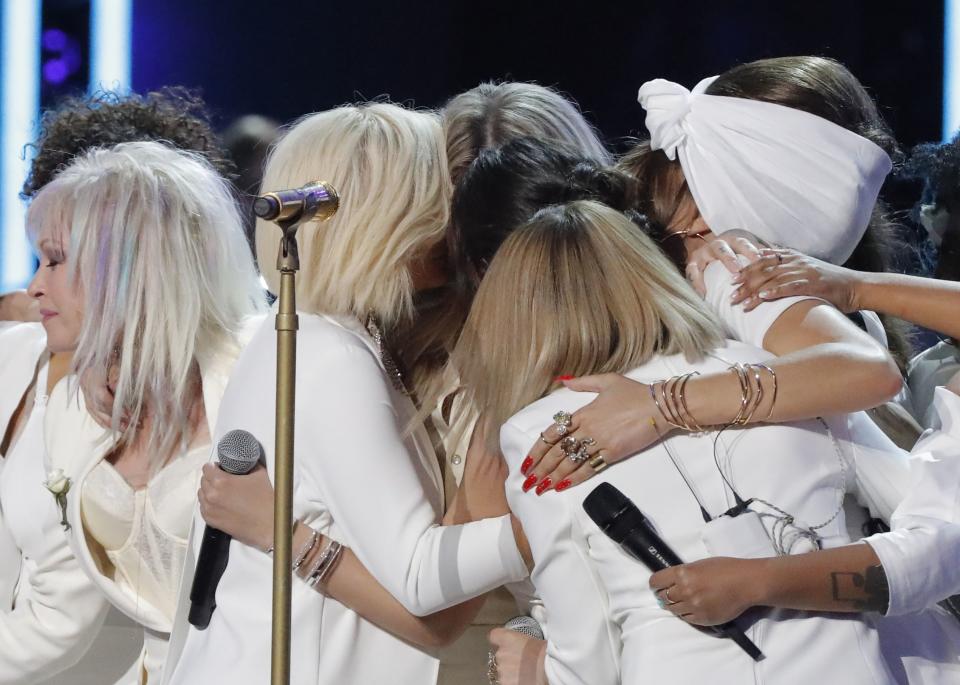Kesha triumphs at Grammys with emotional #TimesUp performance
This month’s Golden Globes was strongly focused on #MeToo and #TimesUp, so music fans of course wondered if the Grammy Awards, which took place Sunday night at New York’s Madison Square Garden, would be similarly political. Many stars made a statement by wearing white roses, a symbol of the women’s suffragette moment, but everyone was waiting for an even bolder statement from Kesha — the woman whose legal battle with producer Lukasz “Dr. Luke” Gottwald (whom she has accused of sexual, emotional, and physical abuse) practically made her the music industry’s poster woman for the movement.

Kesha joined forces on the MSG stage with several of her proud female peers: Cyndi Lauper, Camila Cabello, Julia Michaels, Bebe Rexha, Andra Day, and the Resistance Revival Chorus, all dressed in suffragette white. But even with all that star power, this was Kesha’s centerstage moment alone, the moment she’d been waiting for for more than four years.
As she belted “Praying” from her nominated comeback album Rainbow, particularly as she trembled with rage during the Luke-directed lines, “You brought the flames and you put me through hell/I had to learn how to fight for myself,” Kesha seemed on the verge of tears, as did the supportive women who stood solemn-faced by her side. By the powerful performance’s emotionally bloodletting end, members of the audience, all up on their feet, were sobbing as well, as Lauper, Cabello, Michaels, Rexha, and Day crowded around Kesha in a sisterly embrace.

Another great woman in pop, Janelle Monae, introduced Kesha’s triumphant tour de force with an inspiring speech. “To those who would dare try and silence us, we offer you two words: Time’s up. We say time’s up for pay inequality, discrimination or harassment of any kind, and the abuse of power. It’s not just going on in Hollywood, or in Washington, it’s right here in our industry as well. And just as we have the power to shape culture, we also have the power to undo the culture that does not serve us well,” said Monae. “So let’s work together, women and men, as a united music industry committed to creating more safe work environments, equal pay, and access for all women. And as we do, as artists, our next performer embodies the great tradition of delivering important social messages through their music.”
Unfortunately, the Grammy Awards still have a way to go when it comes to gender equality and inclusivity. This week, the University of Southern California released a study that found that more than 90 percent of recent Grammy nominees have been men. And Kesha’s “Praying,” along with singles by strong women Kelly Clarkson, Lady Gaga, and P!nk, lost Sunday in the Best Pop Solo Performance category to “Shape of You” by lone male nominee Ed Sheeran. Backstage at the Grammys Sunday, when reporters questioned Recording Academy president Neil Portnow about the overall lack of recognition for female artists in this year’s major Grammy categories, he controversially claimed that women just need to “step up” if they want to win more awards.
Additionally, according to TMZ, Lorde, the only female nominee in this year’s Album of the Year race, decided not to perform at the ceremony because she was not offered a solo slot — unlike male nominees Jay-Z (who declined), Bruno Mars, Childish Gambino, and Kendrick Lamar. Lorde was reportedly only invited to sing in a multi-artist Tom Petty tribute, which she felt was a “slap in the face.”

